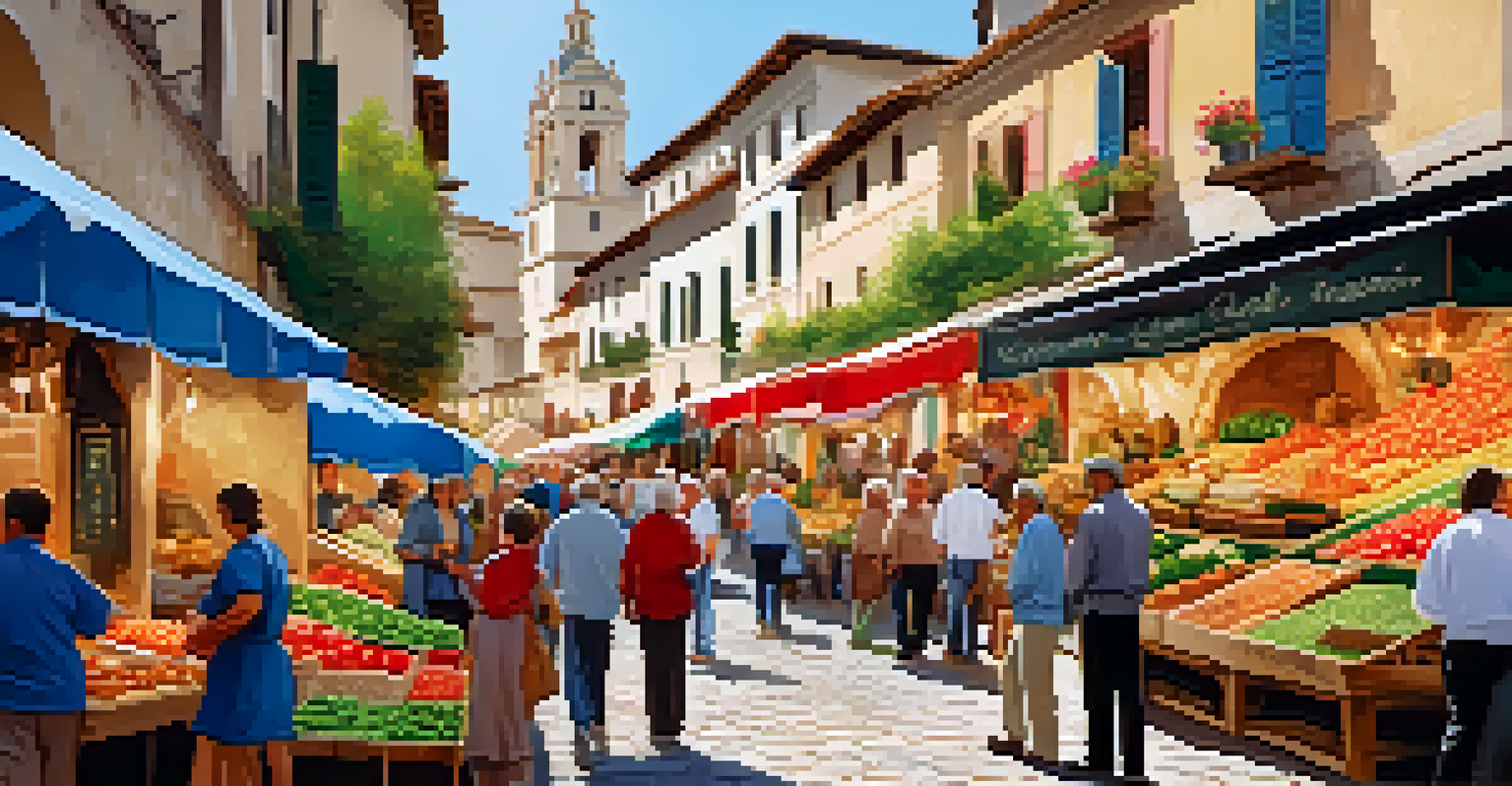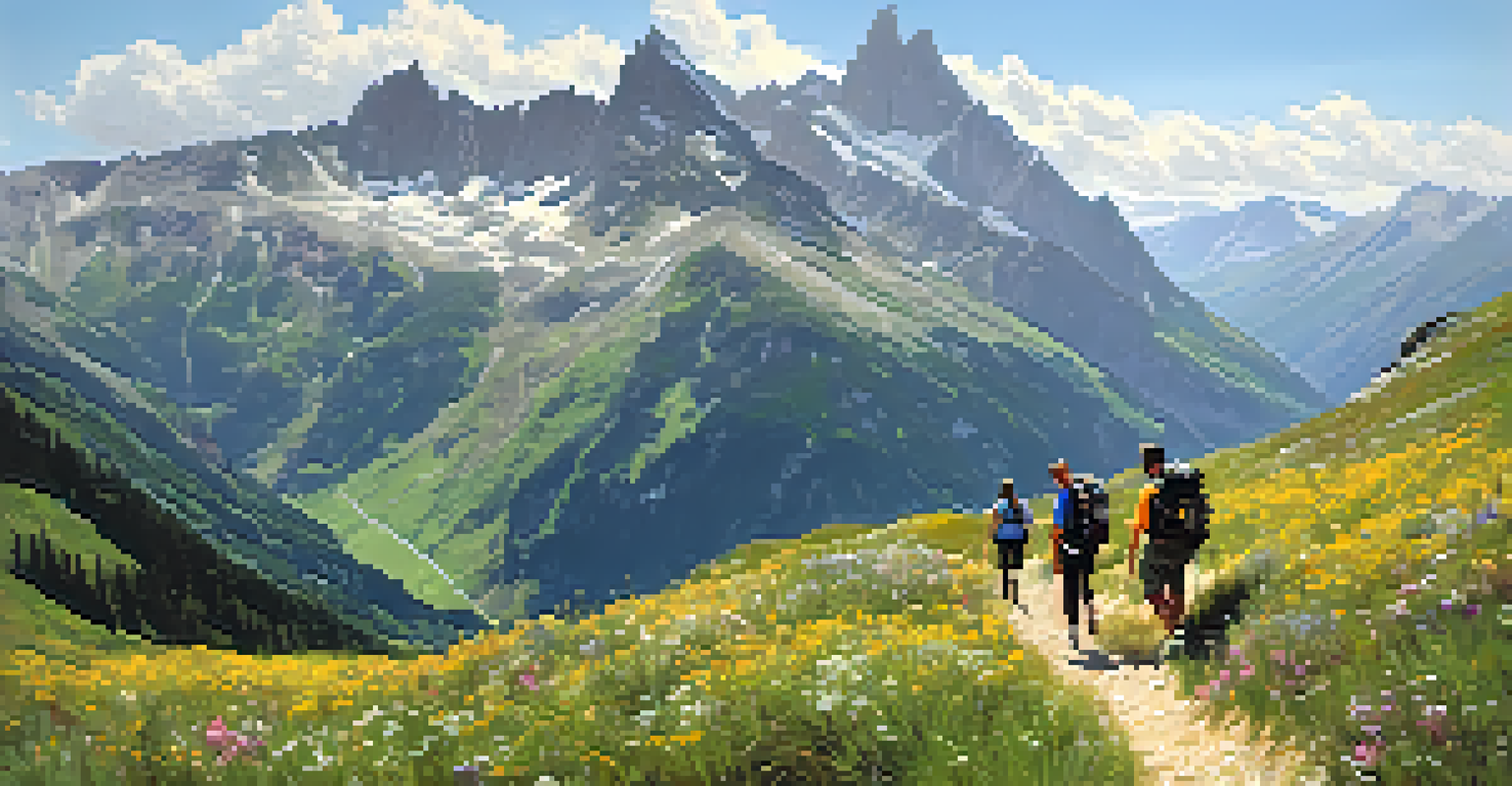Exploring the Charm of Rural Tourism in Spain's Countryside

Why Rural Tourism is Gaining Popularity in Spain
In recent years, rural tourism has blossomed in Spain, attracting travelers seeking a break from the hustle and bustle of city life. The charm of the countryside, with its picturesque landscapes and tranquil atmosphere, offers a refreshing escape. Whether it's sipping wine in a vineyard or hiking through scenic trails, there's something incredibly soothing about immersing oneself in nature.
Traveling – it leaves you speechless, then turns you into a storyteller.
One reason for this surge in popularity is the desire for authentic experiences. Travelers are increasingly looking for connections to local culture and traditions, which rural tourism provides in abundance. From traditional festivals to farm-to-table dining, visitors can engage directly with the vibrant life of these communities.
Moreover, rural tourism supports local economies, allowing small towns and villages to thrive. By choosing to explore the countryside, travelers not only enrich their own experiences but also contribute to the preservation of local heritage and the sustainability of these beautiful areas.
Top Regions to Experience Rural Tourism in Spain
Spain boasts a variety of regions perfect for rural tourism, each with its own unique charm. The lush landscapes of Andalusia are ideal for those seeking sun-soaked hills and olive groves, while the rolling vineyards of La Rioja invite wine lovers to indulge in tastings. Each area offers distinctive experiences that cater to different interests.

Another captivating destination is the northern region of Asturias, known for its stunning mountains and rugged coastline. Visitors can explore quaint fishing villages and enjoy freshly caught seafood, all while soaking in breathtaking views. This blend of natural beauty and local flavor makes Asturias a hidden gem for rural tourism.
Rural Tourism's Rise in Spain
Travelers are increasingly drawn to rural tourism in Spain for authentic experiences and a connection to local culture.
For those looking for a more remote experience, the breathtaking landscapes of the Pyrenees offer a chance to reconnect with nature. From hiking and skiing to exploring charming villages, this region is perfect for outdoor enthusiasts seeking adventure in a peaceful setting.
Immersing in Local Culture and Traditions
One of the most enriching aspects of rural tourism is the opportunity to immerse oneself in local culture. Many rural areas in Spain celebrate vibrant festivals throughout the year, showcasing traditional music, dance, and culinary delights. Participating in these events allows travelers to connect with the heart and soul of the community.
The journey not the arrival matters.
Visitors can also engage in hands-on experiences, such as cooking classes or artisan workshops. Learning to make traditional dishes like paella or participating in pottery-making classes not only provides a unique experience but also supports local artisans. These activities create lasting memories and foster a deeper appreciation for the culture.
Additionally, staying in rural accommodations, such as charming bed-and-breakfasts or agrotourism properties, enhances the cultural experience. Hosts often share stories and insights about their heritage, making travelers feel like part of the family and giving them a personal glimpse into rural life.
Savoring the Flavors of Spanish Cuisine
Rural tourism in Spain is not just about stunning landscapes; it’s also a culinary delight. The countryside is home to countless local specialties, from artisanal cheeses to hand-crafted sausages. Sampling these delights offers a unique taste of the region's agricultural bounty and culinary traditions.
Many rural areas also feature local markets where visitors can interact with farmers and producers. These markets are perfect for picking up fresh ingredients and understanding the farm-to-table process. Plus, indulging in a picnic with locally sourced products makes for a delightful and authentic experience.
Engagement with Local Traditions
Visitors can immerse themselves in local culture through festivals, cooking classes, and artisan workshops.
Food festivals are another highlight of rural tourism, celebrating seasonal harvests and regional dishes. Joining in on these festivities not only tantalizes the taste buds but also connects travelers with the community and its traditions.
Adventure Awaits: Outdoor Activities in the Countryside
For adventure seekers, Spain's countryside offers a plethora of outdoor activities. From hiking and mountain biking to horseback riding and rock climbing, there’s something for every level of adventure enthusiast. The diverse landscapes provide stunning backdrops for these activities, making each experience even more memorable.
Many regions have established trails and paths that allow visitors to explore their natural surroundings. For instance, the Camino de Santiago, a famous pilgrimage route, offers breathtaking views and a sense of accomplishment for those who choose to walk its path. Engaging with the landscape in this way deepens the connection to the area.
Additionally, water sports such as kayaking and fishing are popular in rural areas with rivers and lakes. These activities not only provide an adrenaline rush but also allow visitors to appreciate the serene beauty of the countryside from a different perspective.
The Importance of Sustainable Tourism Practices
As rural tourism continues to grow, the importance of sustainability becomes increasingly clear. Supporting local businesses, reducing environmental impact, and preserving cultural heritage are crucial for ensuring these areas remain vibrant for future generations. Responsible travel practices can make a significant difference.
Travelers can contribute to sustainability by choosing eco-friendly accommodations and participating in community-led initiatives. Engaging in activities like tree planting or wildlife conservation projects not only benefits the environment but also enriches the travel experience.
Sustainability in Travel Practices
Emphasizing sustainable tourism helps preserve local heritage and supports the economies of rural communities.
Moreover, being mindful of one’s footprint, such as minimizing waste and respecting local customs, fosters a more positive interaction with the community. By choosing to travel responsibly, visitors can enjoy the beauty of rural Spain while helping to protect it.
Planning Your Rural Getaway in Spain
Planning a rural getaway in Spain can be an exciting endeavor, filled with numerous options to explore. Start by researching regions that pique your interest and consider the type of activities you want to enjoy. Whether it's wine tasting, hiking, or immersing yourself in local culture, there's a rural destination that will suit your preferences.
It's also helpful to consider the best time to visit, as certain regions may host seasonal festivals or offer different outdoor activities throughout the year. For example, spring is ideal for experiencing blooming landscapes, while autumn is perfect for wine harvests and culinary events.

Lastly, don’t forget to embrace spontaneity during your trip! Some of the best experiences come from wandering off the beaten path and discovering hidden gems along the way. With a little planning and an open mind, your rural adventure in Spain is sure to be unforgettable.